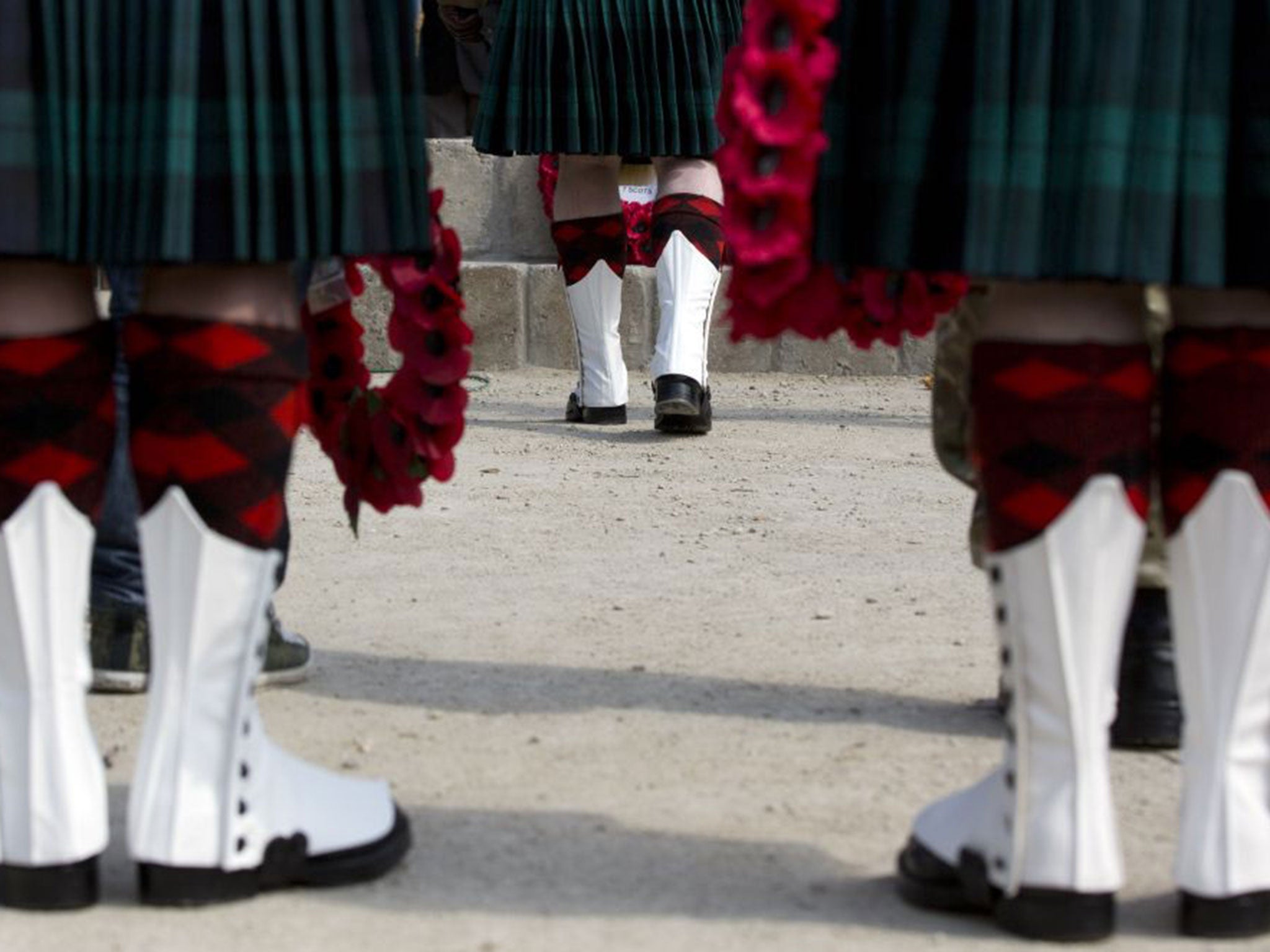Scottish independence: Former generals and WW2 veterans write open letter backing the Union
Another group of veterans yesterday issued their own letter backing a Yes vote

Your support helps us to tell the story
From reproductive rights to climate change to Big Tech, The Independent is on the ground when the story is developing. Whether it's investigating the financials of Elon Musk's pro-Trump PAC or producing our latest documentary, 'The A Word', which shines a light on the American women fighting for reproductive rights, we know how important it is to parse out the facts from the messaging.
At such a critical moment in US history, we need reporters on the ground. Your donation allows us to keep sending journalists to speak to both sides of the story.
The Independent is trusted by Americans across the entire political spectrum. And unlike many other quality news outlets, we choose not to lock Americans out of our reporting and analysis with paywalls. We believe quality journalism should be available to everyone, paid for by those who can afford it.
Your support makes all the difference.The debate over how an independent Scotland would defend itself is reignited today by an open letter signed by more than 400 former servicemen and women who claim that leaving the UK would leave the country’s military “irresponsibly weakened”.
The signatories to the joint statement – which include six former heads of the Army in Scotland, 15 generals and 11 veterans of the Second World War – say that they are “very proud of the remarkable contribution that Scots men and women have made to the Armed Forces”.
But they continue: “We are in no doubt that were Scotland to break away from the United Kingdom the current arrangements for defending all these islands would be irresponsibly weakened.
“We see no evidence that the SNP's proposals for the defence and security of an independent Scotland could possibly provide us with a credible, effective defence force capable of securing the interests of Scotland and our people.”
Among the signatories are Colonel Ian Critchley of the Black Watch, the first officer in the Highlands Division to cross the Rhine in 1945, and two Second World War veterans who sank the Bismark and its sister ship the Turpitz – Lieutenant Commanders Jock Moffat and John Lorimer.
However, another group of veterans backing a Yes vote yesterday issued their own letter stating that the referendum was about Scotland choosing its own future instead of supporting a “self-serving Westminster establishment”.
They wrote: “People who serve in the armed forces and veterans hold a variety of different views on Scotland’s future. We are all voting Yes on Thursday, others will vote No. It is that freedom to decide matters democratically which our service men and women have helped safeguard for generations – it is not about bolstering the position of a self-serving Westminster establishment.”
The signatories explained that they were angered by comments made by the former head of the British Army Lord Dannatt, who has claimed that a Yes vote could be “letting down” Scottish soldiers who died during fighting in Northern Ireland.
“We take the strongest possible exception to the outrageous statement by Lord Dannatt implying that our fallen comrades died in support of a No vote in a Scottish independence referendum,” they wrote. “How dare he take their sacrifice in vain and try to turn it to political advantage.”
Much of the debate around Scotland’s defensive capabilities has centred around the future of Trident, the British nuclear submarines based at Faslane on the River Clyde. The Yes campaign would like to see the weapons removed from Scottish soil, pointing out that they cost taxpayers billions of pounds a year to maintain – but Better Together argues that Britain would lose the ability to protect itself against a nuclear-armed state and that the submarines should be retained.
Join our commenting forum
Join thought-provoking conversations, follow other Independent readers and see their replies
Comments